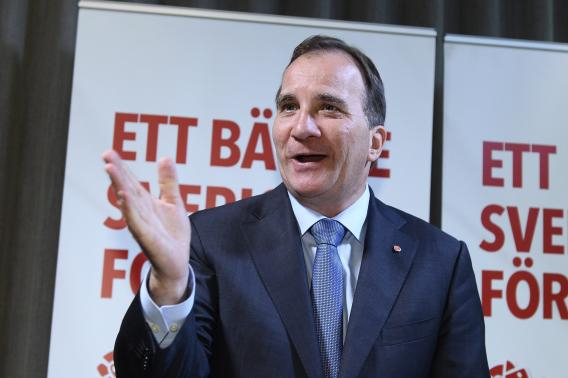
Stockholm: Sweden has done a U-turn on face masks, recommending they be worn on public transport at peak times, having previously resisted their use in the fight against COVID-19 except in healthcare.
Throughout the pandemic the country has stood apart from other nations by shunning lockdowns, and being one of the few holdouts in recommending widespread mask use, even after the World Health Organization (WHO) changed their advice in June.
Announcing several new measures, Prime Minister Stefan Lofven told a news conference the Public Health Agency was now “recommending face masks and that they should be used on public transport at certain times”.
The country’s health officials have repeatedly been questioned on this reluctance but Johan Carlson, director of the Public Health Agency, stressed Friday they maintained that face masks should not be considered a substitute for keeping physical distance, and the recommendation was limited to situations were that was impossible.
“We don’t think it will have a deciding effect, but in this specific situation it can have a positive effect,” Carlson said, adding that wearing them in the street did not seem to be significant.
In addition to the face mask recommendation, Lofven said that as of December 24, the maximum number of people allowed to share a restaurant table would be limited to four and restaurants and bars would not be allowed to sell alcohol after 8:00 pm.
“The situation unfortunately continues to be very serious. The spread of infection is high and the situation in healthcare is very strained,” Lofven said, urging people to take precautions and limit their Christmas celebrations.
The government said that caps on the number of visitors to stores and gyms would be introduced, and warned they could be closed if it was not effective.
Swedish officials said earlier this week that the number of covid hospitalisations had topped a peak registered in April, with more than 2,500 admissions.
Preventive measures
The number of deaths in the country of 10.3 million reached 7,993 on Friday, with more than 500 people in the past week and nearly 2,000 since the beginning of November.
Cited initially worldwide for its softer approach to fighting the pandemic, Sweden has tightened preventative measures in recent months.
As cases multiplied, authorities urged people to limit social interactions to immediate family or a few friends.
A ban on public gatherings of more than eight people took effect last month.
Contrary to media reports, the country never targeted so-called herd immunity as part of its official strategy.
But health officials did argue that widespread infections earlier this year should weaken a second wave, until numbers started climbing in mid-October.
Rather than clamping down now, Lofven said the government was pursuing a long-term strategy because “people would not put up” with a strict lockdown.
The government is preparing a one-year “pandemic law” that could limit the number of people in public places and regulate businesses and services by restricting opening hours or forcing them to close.







